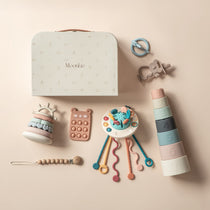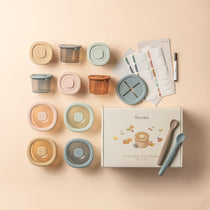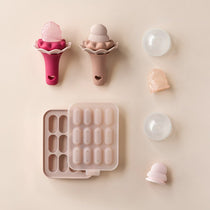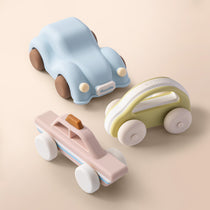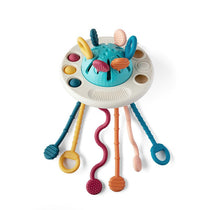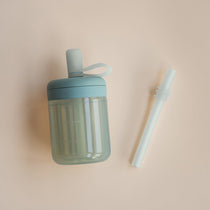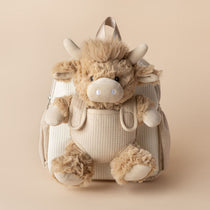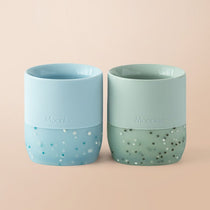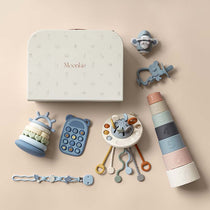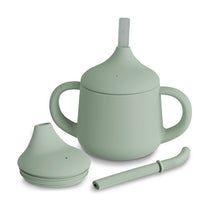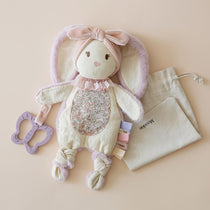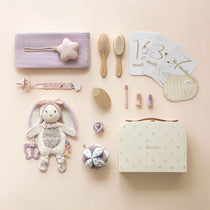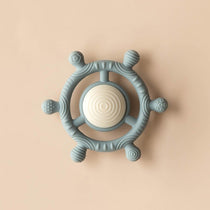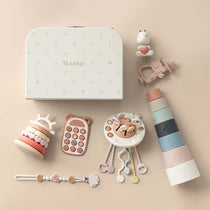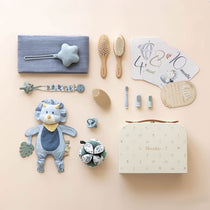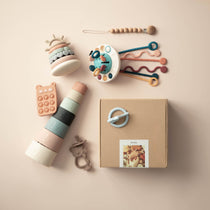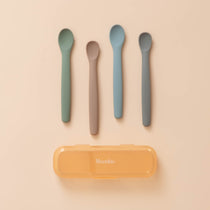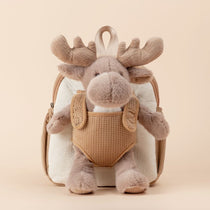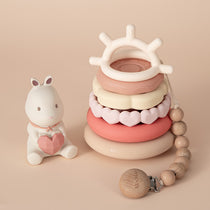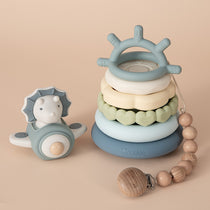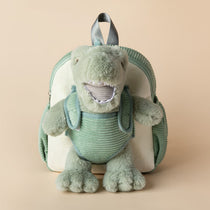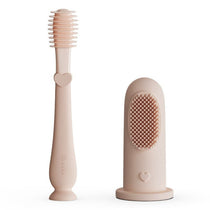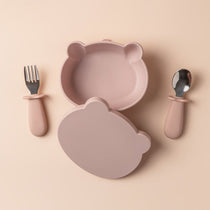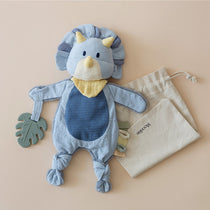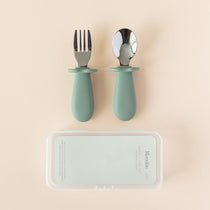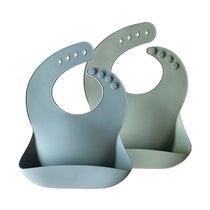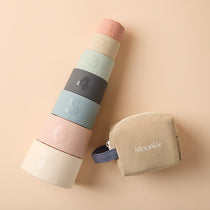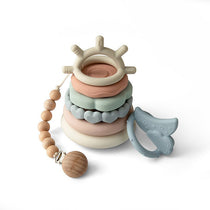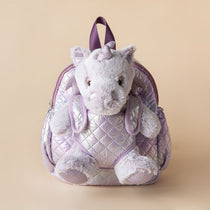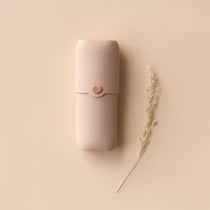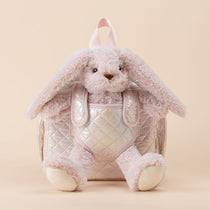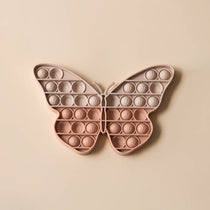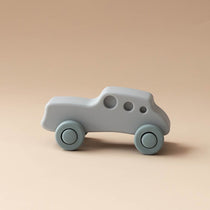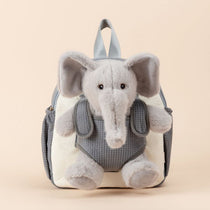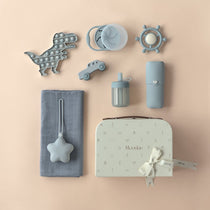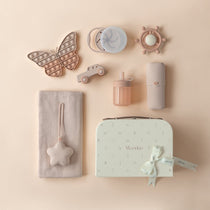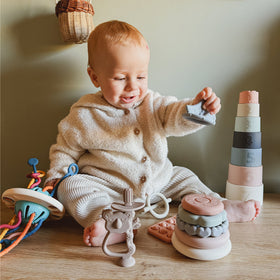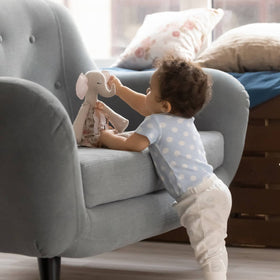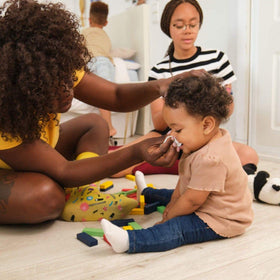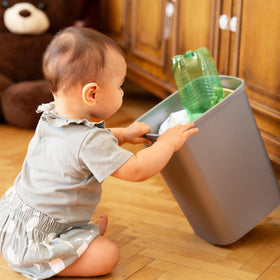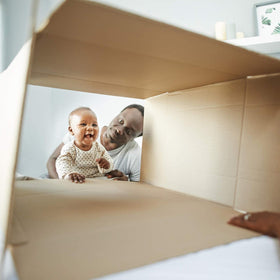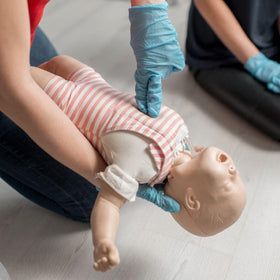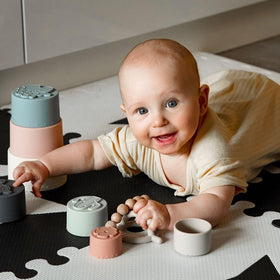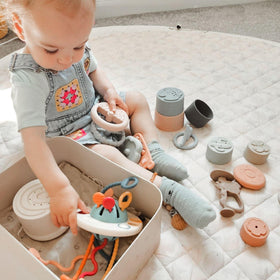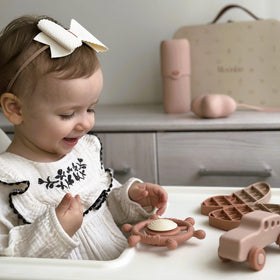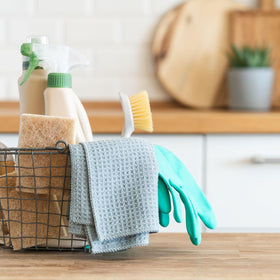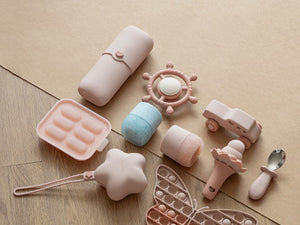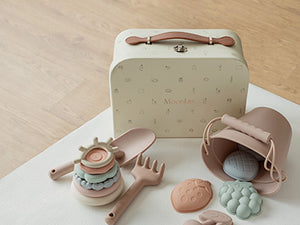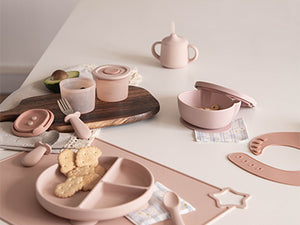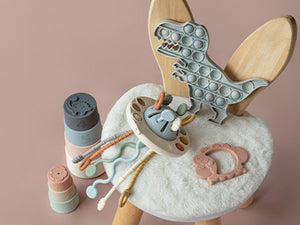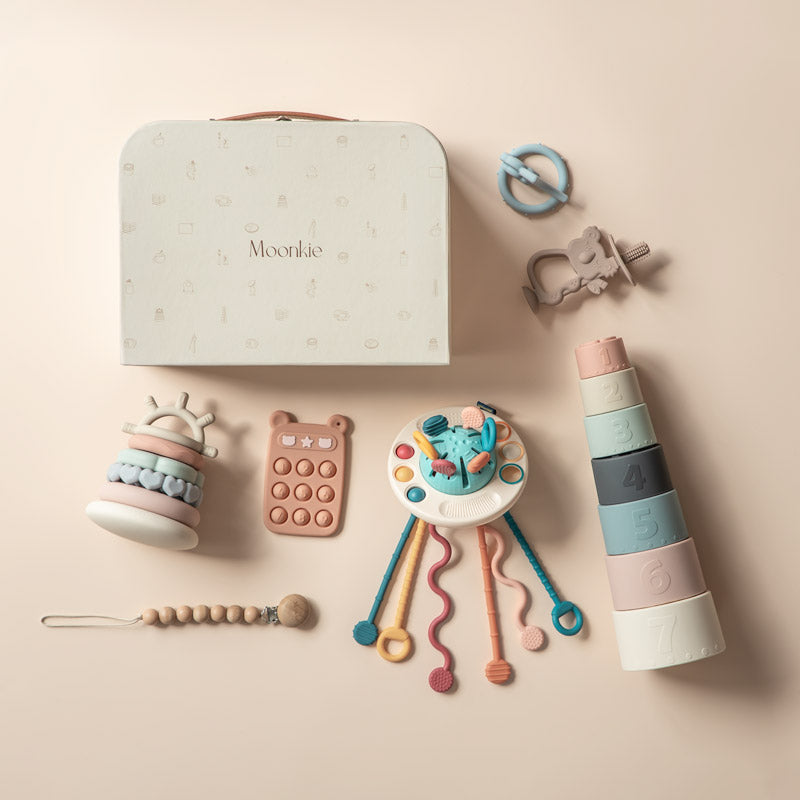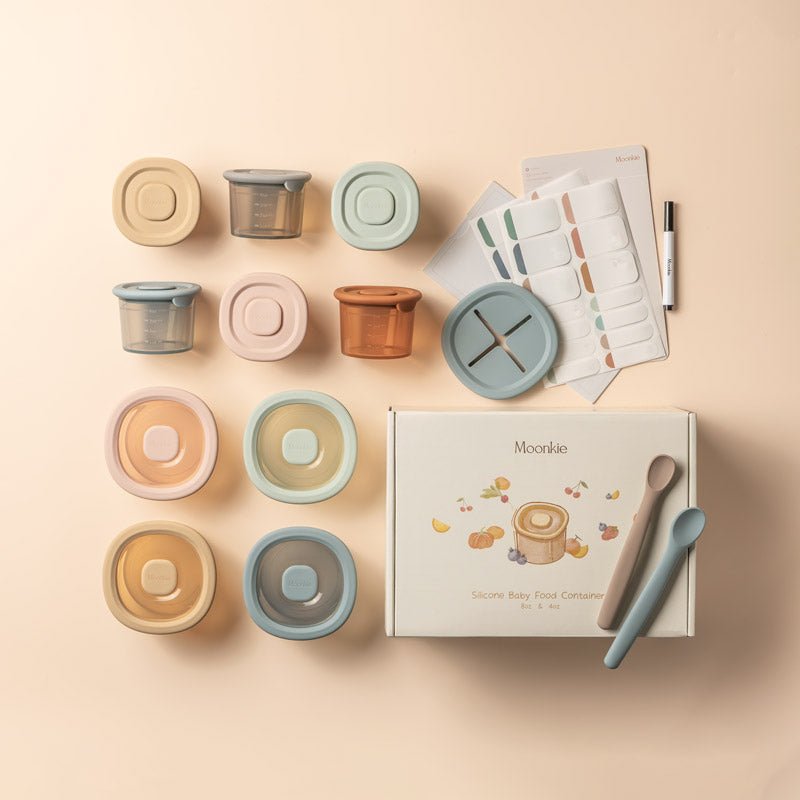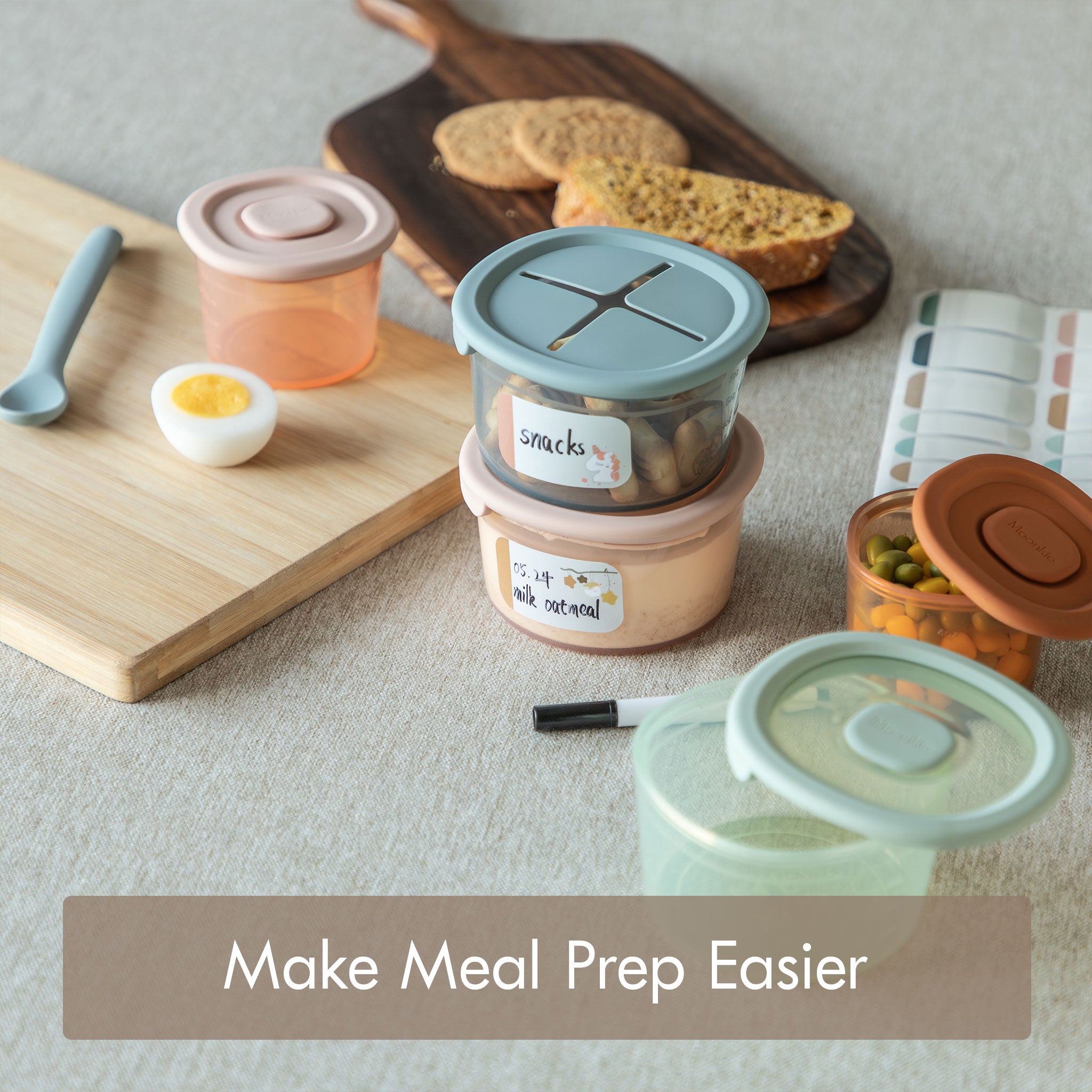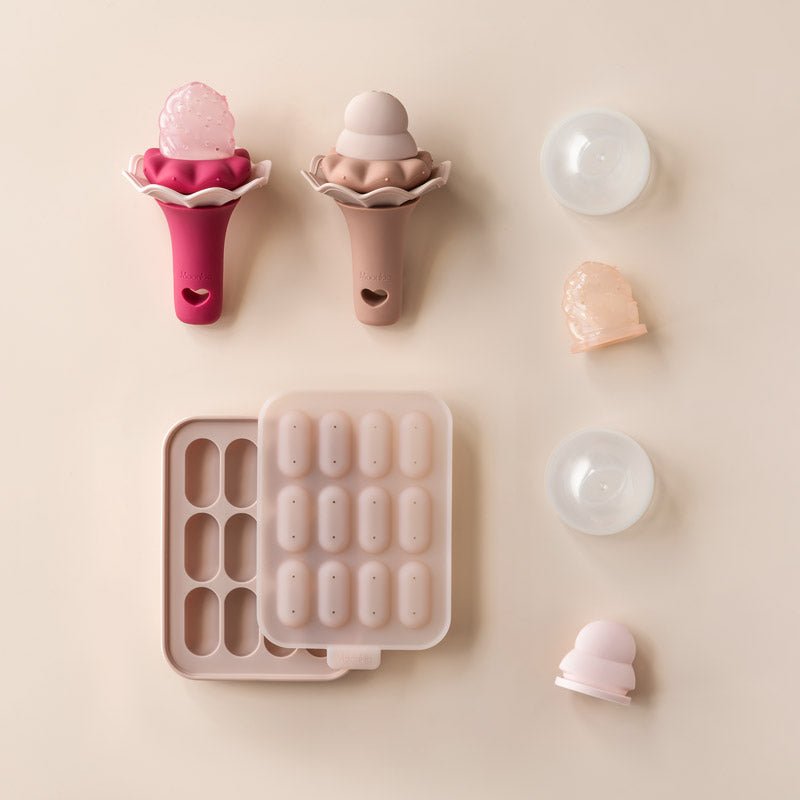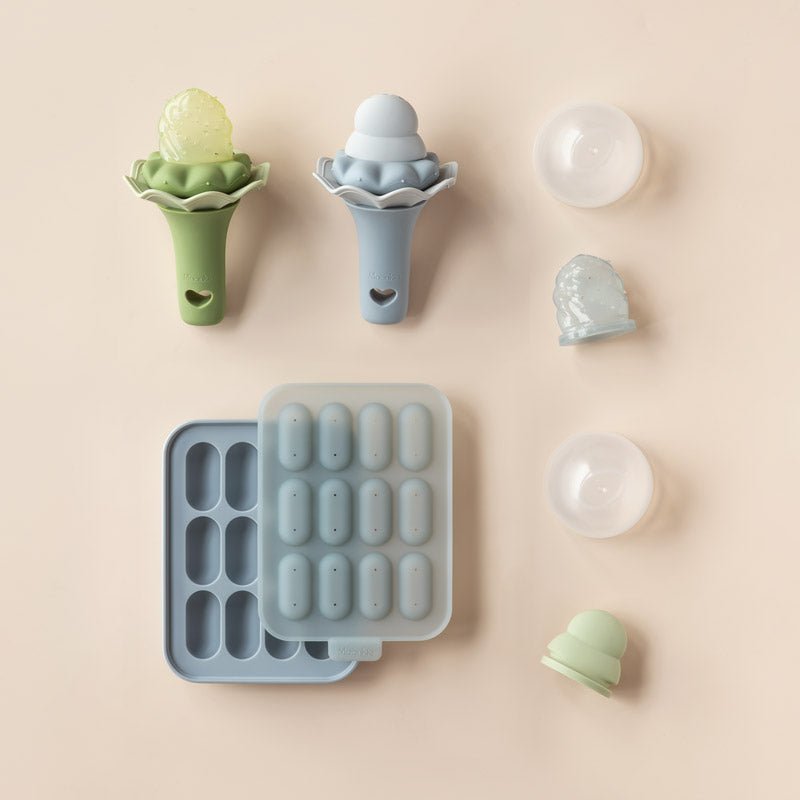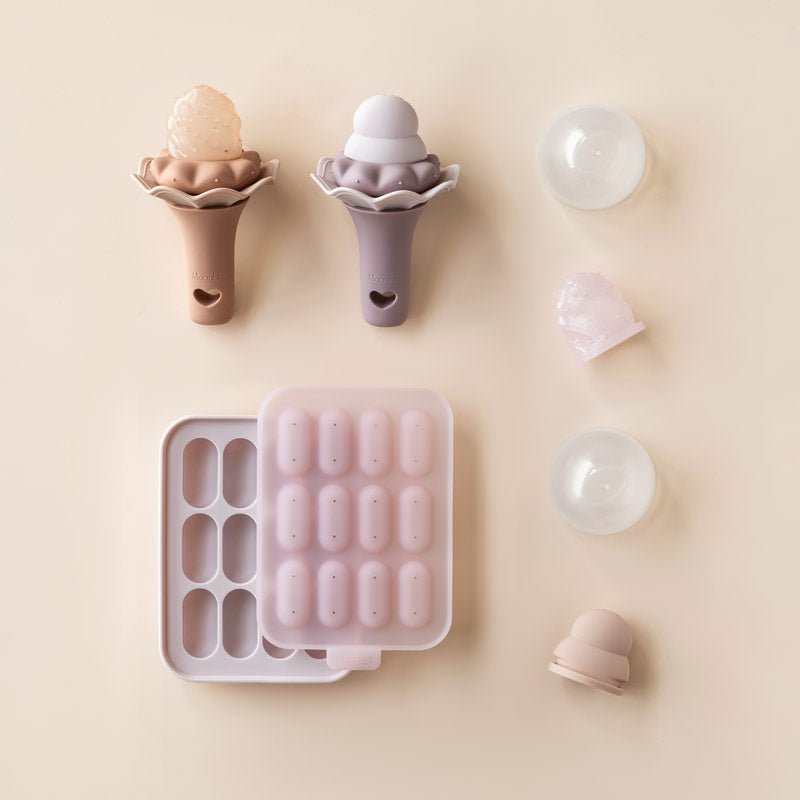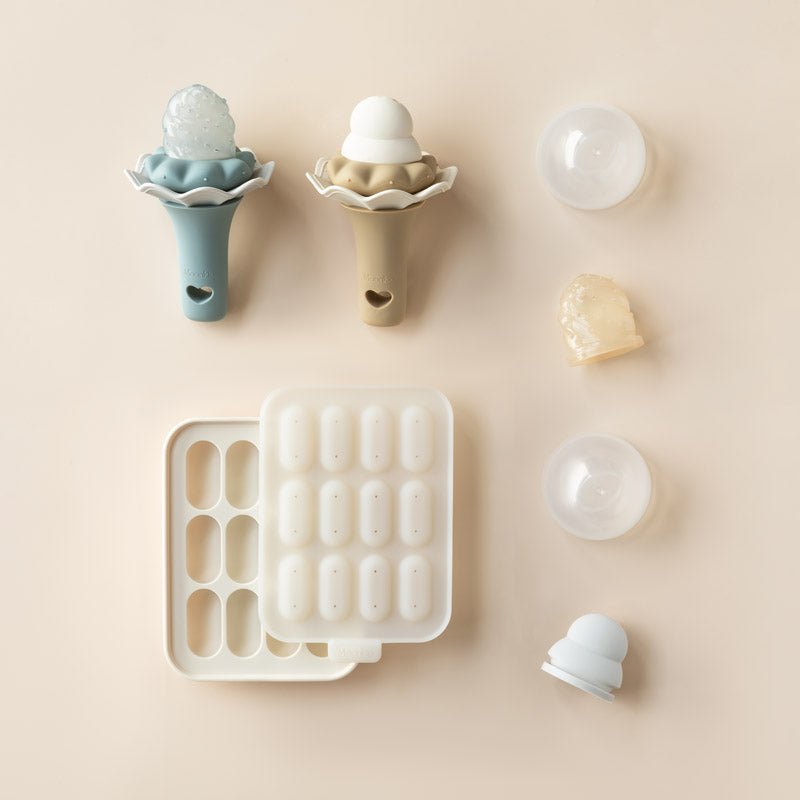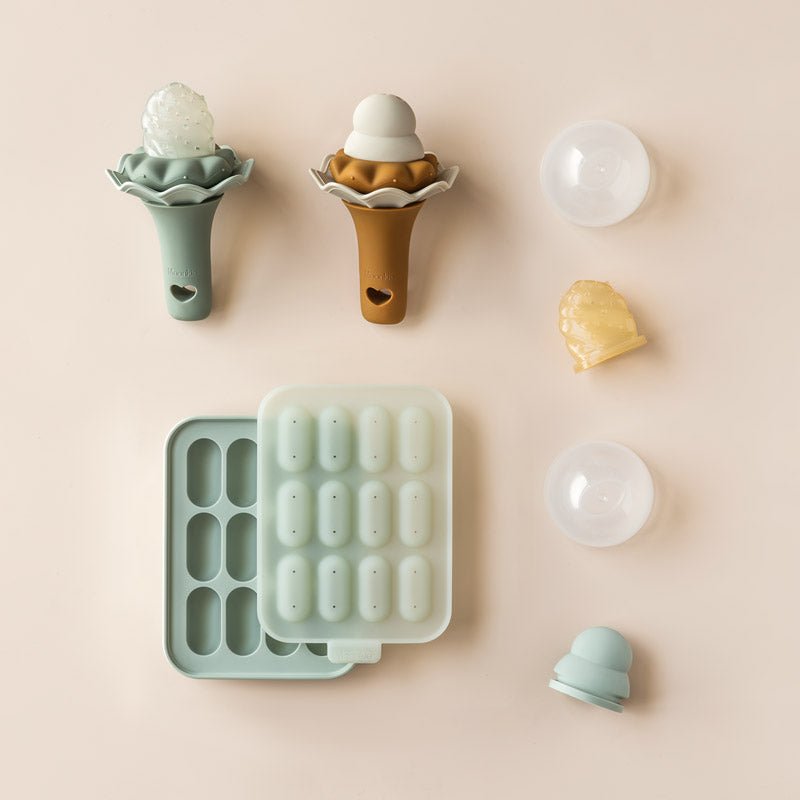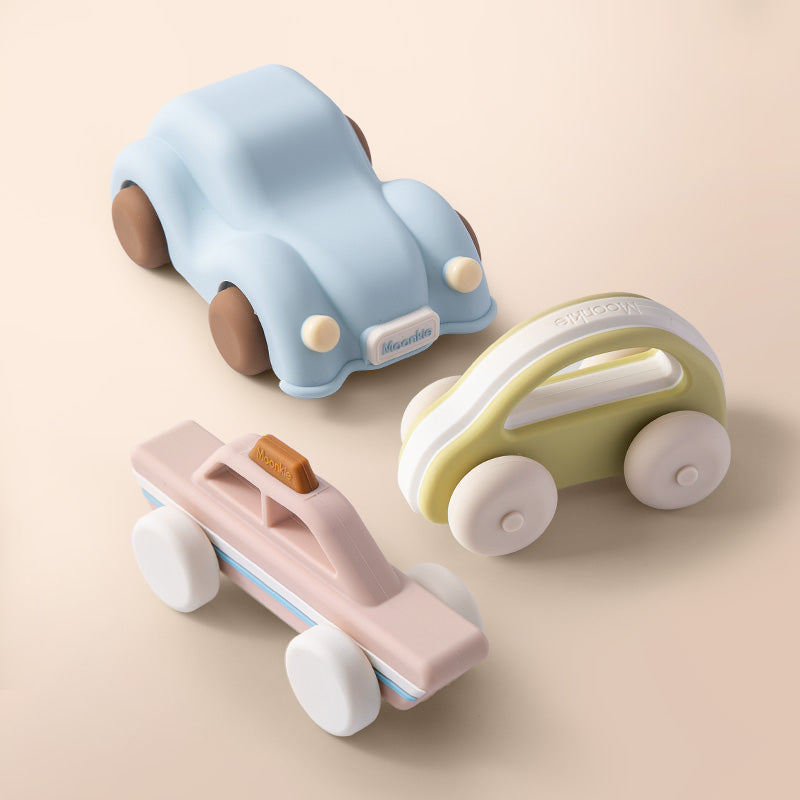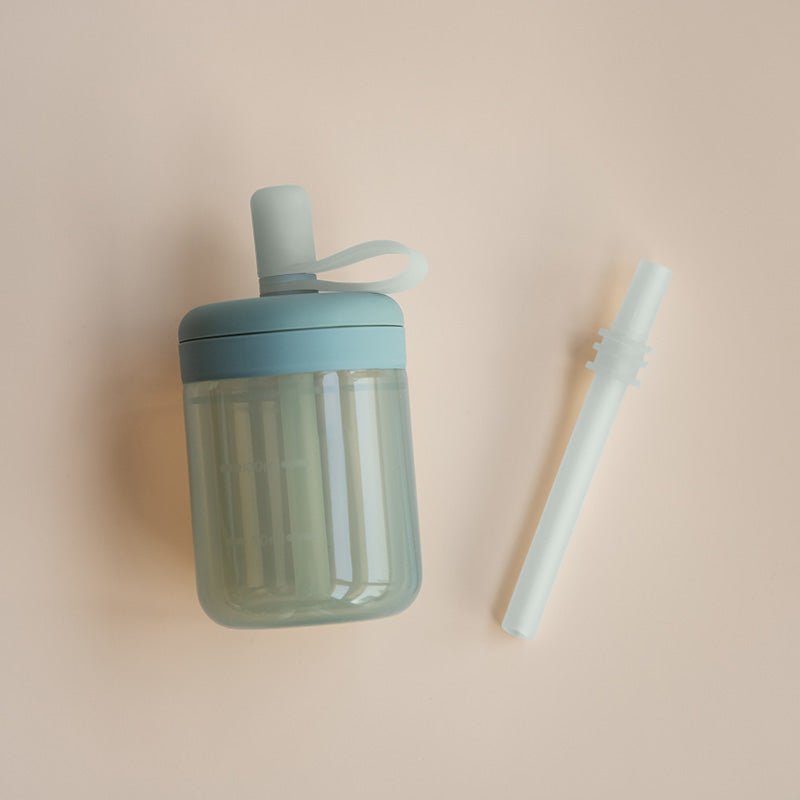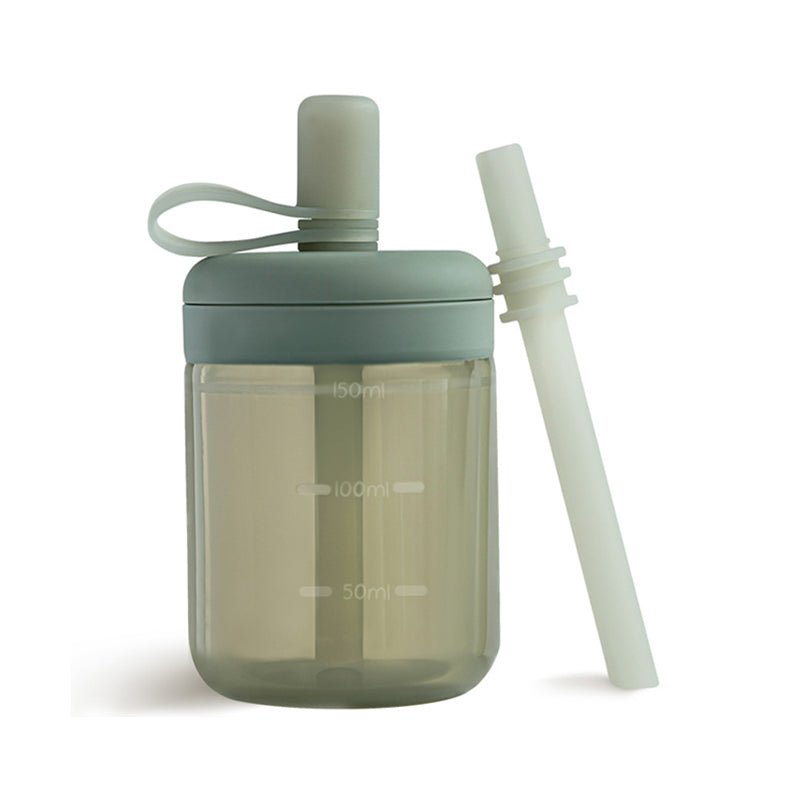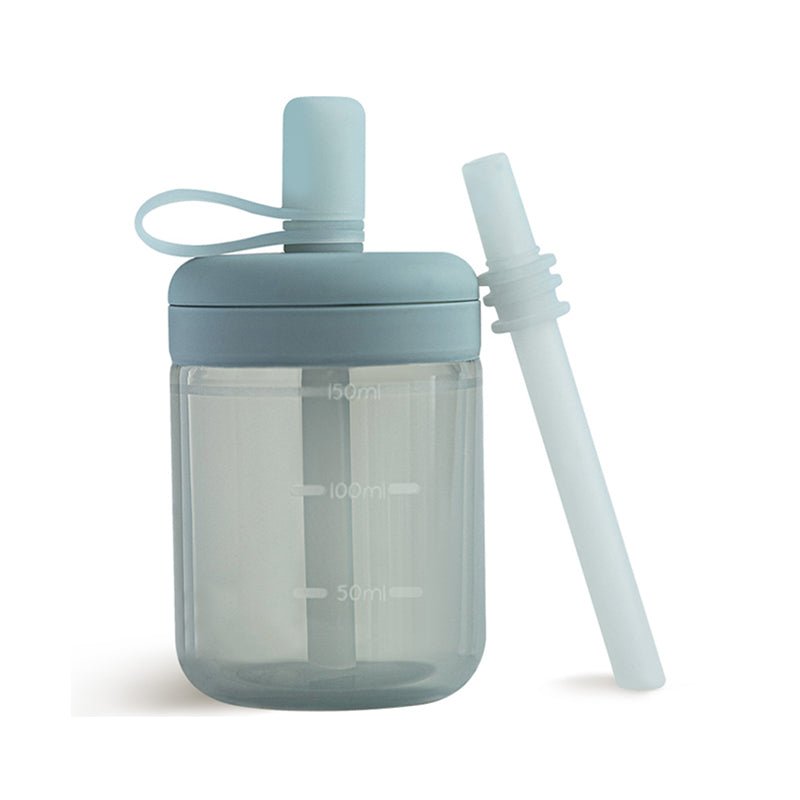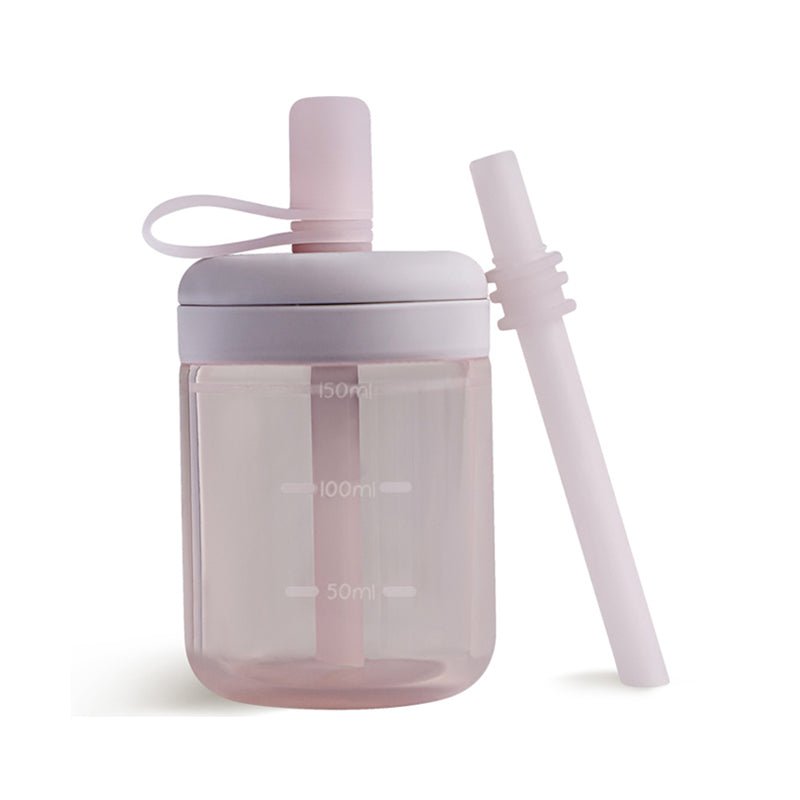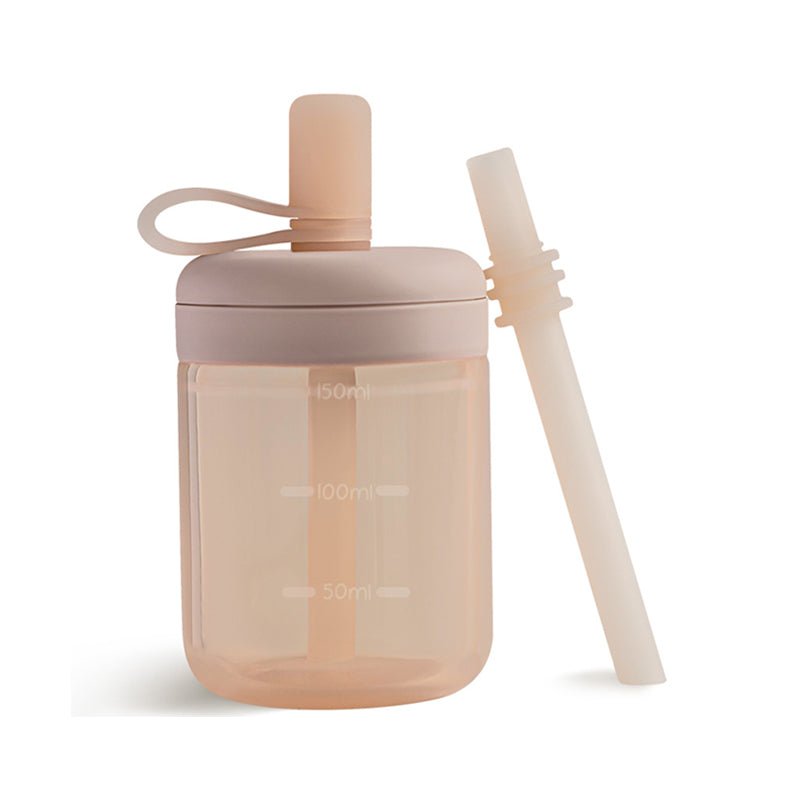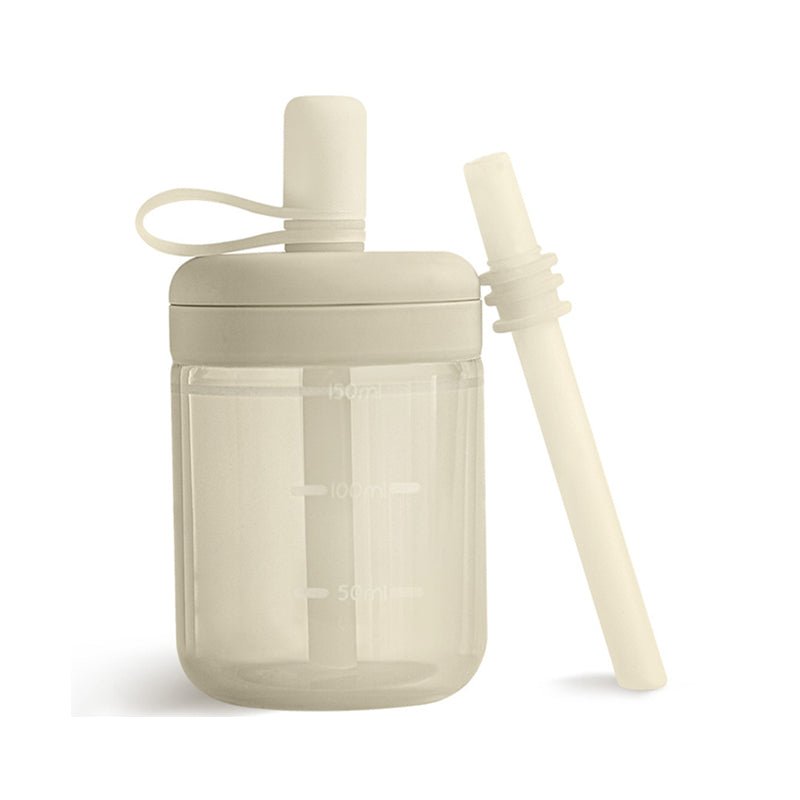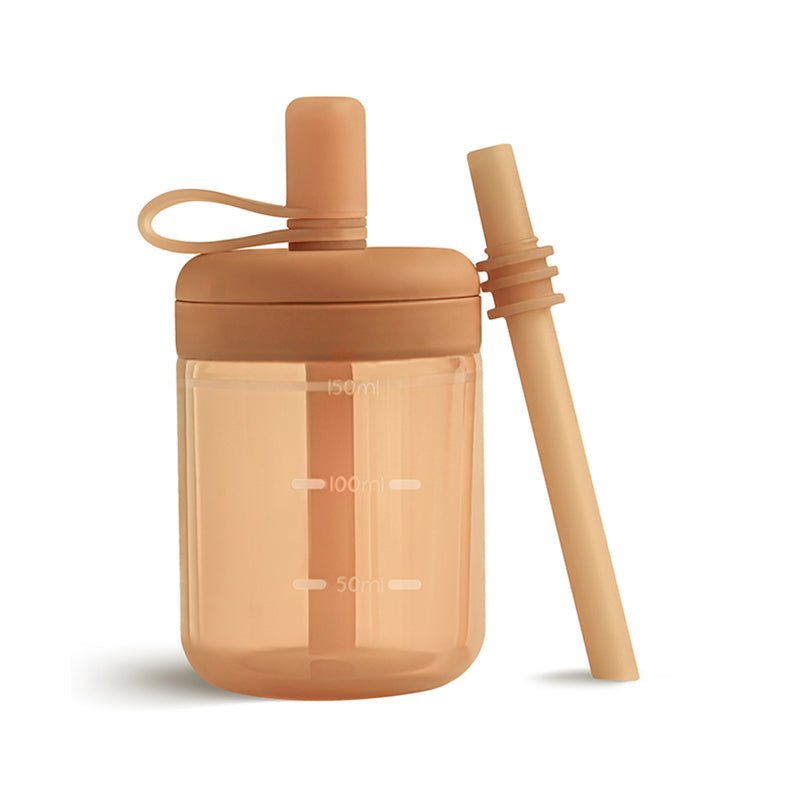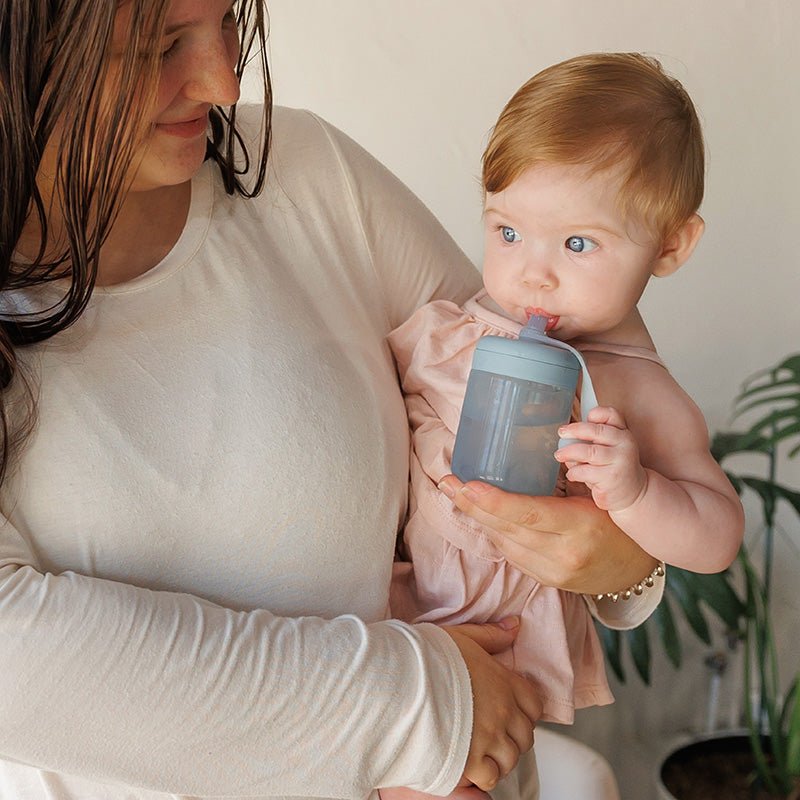Whether you are expecting a baby, already have one, or are planning ahead, chances are you've got some questions about newborn care or what to expect in those first few months.
Having questions about your newborn is expected and healthy for first-time parents. You'll never know if you don't ask! A newborn's safe arrival is wonderful, but those first days typically unleash an endless stream of questions, even if you read up on baby knowledge during pregnancy.
Having been through the newborn stage a few times myself, I've narrowed all the questions I had down to the ones I didn't have a satisfactory answer for, and those my newborns surprised me with.
1. How Often Should I Feed My Newborn?
Each of my newborns threw me for a loop with this one because the standard answer is to feed a newborn every 2-3 hours, including overnight (source). However, newborns grow at breakneck speed, which burns a lot of calories, so that 2-3 hours looks more like every hour most of the time.
And that's every hour from the start of one feeding to the beginning of the next feeding. Yep, at times, you may have a grand total of thirty minutes between feedings (cluster feeding)!
Does Breastfeeding Always Hurt This Much?
Thankfully no! The first two or three weeks are awful and painful, but there's a lot going on. Your body is adjusting hormones, shedding water weight, healing from delivery, and making milk, while your newborn is doing the same stuff while learning to latch and drink efficiently.
It takes a while to get it down, but breastfeeding will not always hurt. Before long, you will be feeding your newborn nearly effortlessly!
2. Is It Normal for My Newborn to Sleep Through Feedings?
Yes and no. At the hospital, the nurses will wake your newborn if he sleeps past the three-hour mark because newborns shed 7-10% of their body weight in the first few days after birth (source).
This makes sense because your baby has constant nutrients in the womb but must adjust to regular feedings after birth. Also, your milk usually takes a few days to come in. First, you will have colostrum, which is super thick and nutritious for jump-starting your infant's gut microbiome and immune system (source).
Once your milk comes in, your newborn should begin gaining weight so that he surpasses his birth weight by week two. By that time, sleeping through a feeding now and then is normal, but your newborn's feeding schedule will ebb and flow quite a bit in the first three months.
3. What Should I Do If My Baby Falls Asleep During Feedings and Eats More Often?
Some newborns fall asleep nearly every time they eat. If it happens within the first five or ten minutes of a feeding, then they are likely to wake hungry within an hour and repeat the cycle. This is a vicious circle when it lasts throughout the night. What can you do?
If this happens before you and your newborn settle into a decent groove with breastfeeding, just hang on and feed your little one whenever she roots around or sucks on her hand in search of milk. You could use a pacifier as well, but a pacifier may throw off crucial breastfeeding skills this early.
After we were well established, I found that pumping milk and switching to a bottle made my newborns stay awake long enough to eat well and sleep more fully. When bottle feeding, whoever was holding the bottle was able to adjust positions more frequently to keep the baby awake longer.
I didn't do this all the time because breastfeeding is more convenient time-wise and more consistent for nursing, but pumping milk to break up cluster feeding cycles was a lifesaver!
4. How Can I Tell If My Baby Is Getting Enough Milk or Formula?
Formula is easy because you can simply prepare the amount indicated on the can for your newborn's age and weight. One way to tell if your baby is getting enough milk or formula is by monitoring his weight gain. A healthy newborn should gain around 5-7 ounces per week (source).

You can also count diapers. She should have six or more wet diapers per day and at least three poopy diapers. The number of diapers will decrease over time, especially after the three-month mark, but for these first weeks, look for nine to twelve diapers a day.
5. How Can I Treat Diaper Rash?
Diaper rash is inevitable, so go ahead and buy some zinc oxide diaper cream for your baby's diaper bag and changing station. Left unaided, diaper rash can become an open sore or an infection within hours, so stay on top of these!
Treat diaper rash by:
changing dirty diapers as soon as possible
being gentle when cleaning the diaper area
using a warm, wet washcloth or alcohol and fragrance-free baby wipes
applying a thick layer of zinc oxide diaper cream to the area
If the diaper rash doesn't go away for three or more days or turns into an open sore that won't go away or spreads, call your pediatrician. If the rash becomes infected or your baby develops a fever, blisters, or pus draining from the rash, call your pediatrician (source).
6. What If My Baby Hasn't Pooped In a While?
Your newborn (0-3 months) should be pooping 1-3 times a day, so if he doesn't poop for 24 hours, then you need to call your pediatrician. Your baby may not be eating enough or be constipated, but this situation can get out of hand and cause fever quickly (source).
After the three-month mark, it is normal for breastfed babies to drop back to one poopy diaper a day and later back off to one every two days. Your baby will show signs of discomfort if he is constipated: fussing, not sleeping, and tight abdomen. Your pediatrician will likely suggest a little prune or apple juice to get things moving again.
7. How Do I Bathe My Newborn?
You can give your newborn a warm sponge bath until her umbilical cord stump is gone, usually around 1-2 weeks. After that, you can give her a bath in a baby bathtub or a sink filled with warm water.
Be sure to support your baby's head and neck, and use a mild soap. Your newborn likely doesn't need to be bathed daily; watch her skin to ensure you are not drying her out. Two to three baths a week is plenty. Invest in a newborn bath seat if you are nervous about holding your baby while bathing her.
8. How Do I Care For My Newborn's Umbilical Cord Stump?
Keep the umbilical cord dry and clean. You can use a clean cotton swab dunked in rubbing alcohol to clean the area around the stump, especially if some pee or poop rides up the front of the diaper.
Fold the front of your baby's diaper down to keep the stump exposed until it falls off. Your baby won't be bothered by sleeping on his belly or doing tummy time, but you shouldn't try to pull the stump off.
If the area around the stump becomes red and swollen, lots of puss begins draining from under the stump, or your newborn develops a fever, take your newborn to the pediatrician to check for infection.
When Will the Umbilical Cord Stump Fall Off?
The umbilical cord stump normally falls off within 1-2 weeks of birth. Don't pull or rub it off; it will work off itself.
9. How Can I Soothe My Fussy Baby?
Some nights, you may feel like you are at your wit's end trying to figure out why your newborn is crying. You can try rocking, swaying, singing, talking, giving a pacifier, or walking in the stroller.

Here are a few ways I've used to calm fussiness in newborns:
wrapping the newborn in a snug swaddle, cradling, humming, and patting the baby's butt
putting the newborn in a sleep sack instead of a sleeper
pumping the baby's legs to get gas moving and calm gurgling in the gut
holding the newborn so that she can see and walk around talking about things
letting the newborn suckle until she falls asleep
Every baby is different, so you may need to try various methods to find what works best for your little one.
10. How Long Should My Baby Sleep Each Day?
Newborns sleep a lot--even up to 16-17 hours per day. This sleep is usually broken up into short periods of a few hours at a time to make space for frequent feedings and bowel movements, even at night.
Though newborns sleep so much, it takes a while before they adjust to sleeping at night. While in the womb, newborns tend to sleep while mommy moves around (lulled to sleep) and wake up when mommy sits or lies down. Your newborn is still on that schedule after birth, so don't be surprised if he is wide awake at 3 am!
At first, your newborn will only spend a short time awake to observe his surroundings. But that awake and alert time will increase steadily over the first months, as will sleeping more at night than during the day.
11. How Can I Help My Baby Sleep Through the Night?
There's no one-size-fits-all answer to this question, as every baby is different. Some tips that may help your baby sleep through the night include establishing a consistent bedtime routine, creating a calm and quiet sleeping environment, and avoiding overstimulating your baby before bedtime.
Things like TV, loud music, shouting, lots of people around, and seeing lots of new things right before bed should be avoided as they are over-stimulating.
Nonetheless, do not expect to get more than 4-6 hours of solid sleep at night for the first three months after birth. Your newborn will need to eat, pass gas, poop, and be soothed every 2-3 hours during the first two months and 3-4 hours during the third month.
12. When Should I Start Making My Newborn Stick to a Schedule?
Sleep training for naps and longer nights can start as early as 4-6 months of age, but it's helpful to talk to your doctor to make sure your baby is developmentally ready.

My family's approach was to keep the baby awake after the afternoon nap, cook and eat dinner by 6 pm, do bathtime, read a book while nursing the baby, and settle into bed by 7:30 pm every night. This rarely interrupted evening routine helped signal bedtime for my babies (the second baby learned faster with a toddler to follow).
For naps, we had a breakfast and lunch routine to encourage the mid-morning and afternoon naps. There are many different sleep training methods, so you may want to talk to a doctor or sleep specialist to find the best approach for your family.
13. What Should I Do If My Baby Has a Fever?
If your baby has a fever, you should contact your doctor right away. In the meantime, you can help keep your baby comfortable by nursing often, dressing her in lightweight clothing, and giving her infant acetaminophen or infant ibuprofen as directed by your doctor.
Your baby may be inconsolable when fevered, but your attitude, patience, and calmness are necessary to get her to sleep. Sleep and milk will help your baby through most common illnesses.
When Should I Call the Doctor About My Baby's Symptoms?
You should call your doctor if your baby has any symptoms that concern you, such as fever, vomiting, diarrhea, difficulty breaking, or a persistent rash.
It's better to be safe than sorry!
14. Should I Let My Baby Get All the Vaccinations?
You should start thinking about vaccinations for your baby before she's born. Talk to your doctor or pediatrician about the recommended vaccination schedule and any concerns you may have. Do research and reach out to other doctors and experts as well to get other opinions.
If you are leery of vaccinations, consider the risks for your baby not getting vaccinated. Are those risks worth taking? Moreover, think about where your child will go to school. Most public schools require shot records, so turning down vaccines now may affect where your baby will attend school later.
15. When Should I Start Tummy Time With My Baby?
You can start practicing tummy time with your baby from day one, as long as he is supervised and awake. Aim for a few short sessions each day, slowly increasing the amount of time your baby spends on his tummy.

Don't do tummy time right after eating or before burping; that makes a big mess! Your newborn won't like tummy time much, but it's crucial for building neck and back muscles. Besides, tummy time is helpful for moving gas along!
Check out From Teething to Tummy Time: The Top Sensory Toys for Every Stage of Babyhood for tummy time toy ideas!
16. Can I Use a Chest Carrier With My Baby Before She Can Hold Her Head Up?
No, avoid carrying your baby in a chest carrier until she can hold her head steady on her own. Otherwise, she won't be able to stabilize her head while you walk around, which could cause a strain on her neck. Most babies can start riding in a chest carrier around 4-6 months old.
Once your baby is able to ride in a chest carrier, it becomes tempting to use it all the time. However, be mindful of your little one's legs as blood circulation may get cut off, or she may become sore sitting with her legs on either side of the seat. 30-45 minutes is long enough for a baby who fits the carrier well.
17. Is There Such Thing As Too Long in the Baby Swing?
Yes! If you read the instructions on the box, you will probably see that the swing designers suggest no more than 30 minutes at a time in the swing. Moreover, the AAP says you shouldn't use the swing for more than an hour a day in two 30-minute stretches (source).
The fear is that your infant's soft head can begin to flatten. Besides, your baby won't always have a swing around to fall asleep in, so it's better that you don't get used to it.
18. Is It True That Rocking My Newborn to Sleep Will Make Him Need Rocking Every Time?
Everyone seems to have an opinion on this! Many are afraid that rocking their newborns to sleep will result in the baby requiring rocking to fall asleep well into the toddler years. Others claim that rocking is a sweet and comforting time that is well worth the hassle.

The verdict? Two studies have shown that rocking babies may help them fall asleep faster and promote brain function, but these studies need follow-up studies (source).
19. Can I Give My Newborn Water?
No! Do not give your newborn water until your pediatrician gives you the green light around 6 months old. Newborn bellies and kidneys need to have only breastmilk or formula because they use everything they get to grow and build millions of neural connections.
Giving your newborn water will flush them out, cause nutrient loss, and cause water intoxication (source). Newborns can only have a couple of ounces of fluid in their belly in the first few weeks, and that grows to about seven ounces by 6 months old. That space needs nutrient-dense milk, not water.
If you are worried about hydration, rest assured that your little one will get all the hydration he needs through breastmilk or formula until he is weaned or a year old. As for juice, avoid giving your baby juice until after his first birthday unless your pediatrician recommends it.
20. Can I Let My Newborn Try Sauces?
It is best to avoid giving your newborn sauce taste tests until she is around 4-6 months old. A newborn's gut is incredibly delicate early on, so wait to make those fun introductions until she is food-ready.
Also, DO NOT give your baby honey until after her first birthday (some doctors recommend waiting until two) because it has a bacteria that causes infant botulism (source). Infant botulism causes weakness in muscles, sucking, crying, and it causes constipation.
21. How Can I Help My Baby's Eczema Clear Up?
Some little ones develop eczema, a skin condition that causes dry, itchy patches of skin. Aside from discomfort, constant itching can scratch the skin, letting unwanted bacteria in. Your pediatrician will likely prescribe a steroid cream for breakouts and putting socks over your baby's hands to prevent deep scratches.
Eczema can come through genetics, environmental irritations, or both. One long-term strategy you can use to minimize potential breakouts is to simplify the chemicals you use in cleaners, detergents, diapers, wipes, and candles. You can find each of these things made with natural ingredients easily these days.
I had to switch to cloth diapers and homemade wipes for my babies because they had breakouts every week. When I changed everything diaper, wipe, detergent, and cleaner over to natural ingredients, breakouts only happened when they sweated a lot outside. Read Going Green: How to Create a Sustainable Home for Your Family for more!
22. Is It Okay to Let My Baby Sleep With Me?
You can, but it's better to be safe and place your newborn in a bassinet or crib next to your bed. The chances of you rolling over onto your newborn while sleeping hard are too high and not a risk worth the convenience of having your baby right there for night feedings.

You can hold your baby on top of you in a recliner that you are not likely to roll over in if you would like. I had to do this often with one of my babies, who was unable to keep milk down while lying on her back.
23. Should I Keep Nursing My Newborn When I Have Mastitis?
As painful as it is, you should keep nursing your newborn when you have mastitis. Mastitis is inflammation of a mammary gland that may also entail a bacterial infection from milk staying there too long.
Letting your newborn suckle or nurse may actually help get the milk flowing through the affected gland again, which will ease your pain and cure mastitis. Not getting that milk flowing could cause an abscess or cease milk production (source).
You can also try pumping milk, but some electric pumps hurt even more than nursing. If you don't have a pump yet or need a quieter option at work, check out our gentle and silent hand pump.
24. Can My Baby Taste Different Foods I Eat in My Milk?
Kind of! Infants can detect strong flavors like garlic, carrot, eucalyptus, mint, anise, and vanilla in breast milk within hours after you eat them. Your baby can pick up on other flavors too, but it's not clear how much (source).
By eating a range of foods, you can introduce your baby to lots of flavors!
25. Is It Normal to Become Angry or Feel Overwhelmed With My Newborn?
Yes, it is totally normal to feel angry or overwhelmed with your newborn, but it should not lead to thoughts of harming yourself or your baby. Likewise, you should not yell at or roughly handle your newborn. If you feel a tendency to do so, reach out to your pediatrician or confide in a counselor or therapist.

You've got to deal with such thoughts before you act on them and cause irreparable damage to your newborn physically, emotionally, socially, or mentally. If such thoughts happen in your mind daily, you may have postpartum depression. Talk to your doctor to get it handled quickly.
In a Nutshell
Being a first-time parent is marvelous, but caring for a newborn sparks hundreds of questions. Hospitals do their best to provide care instructions, and Google is chock-full of answers, but some questions need more than a standard answer or a Quora thread. If I missed a question you have, comment below!

